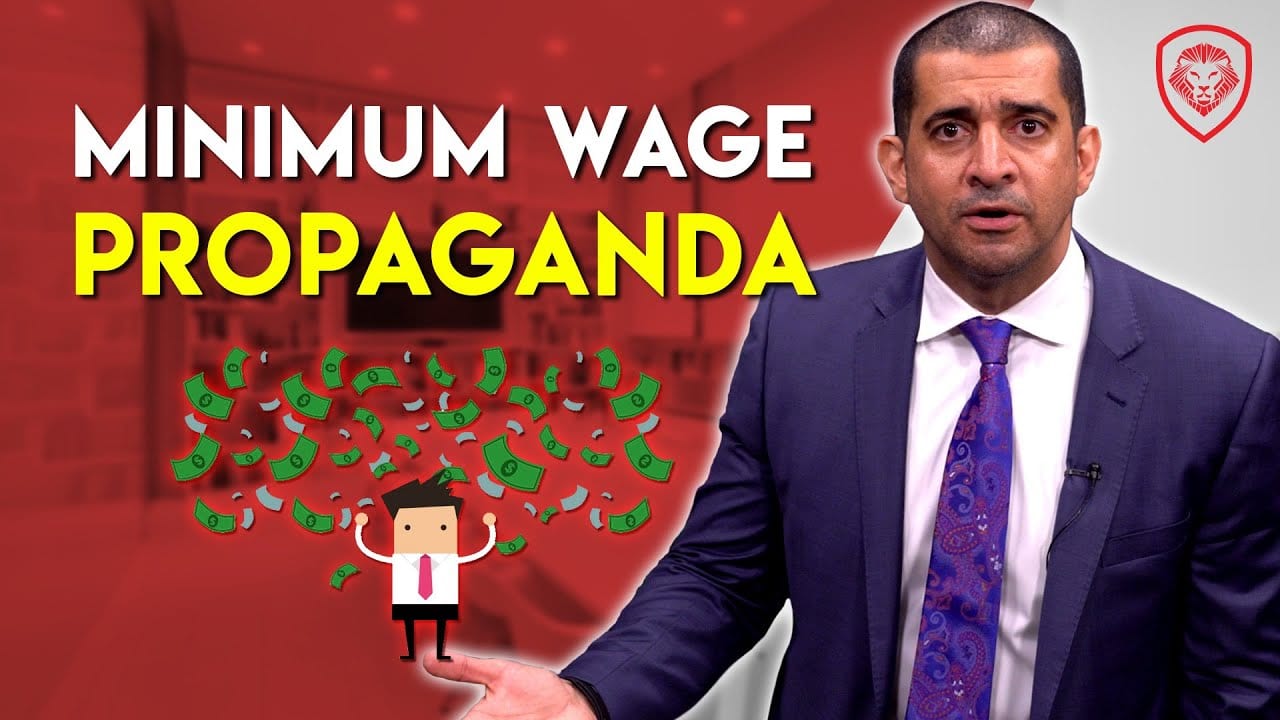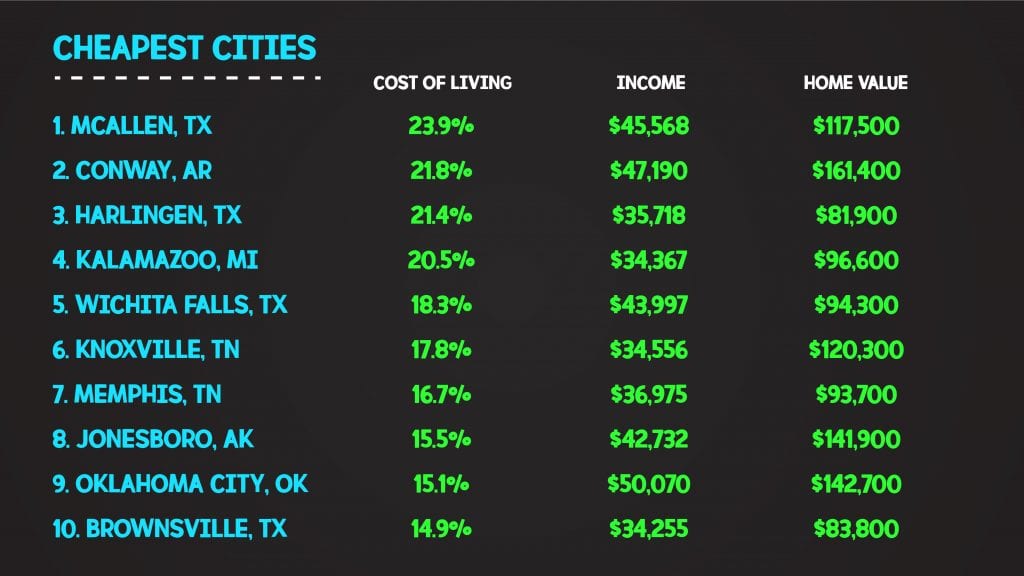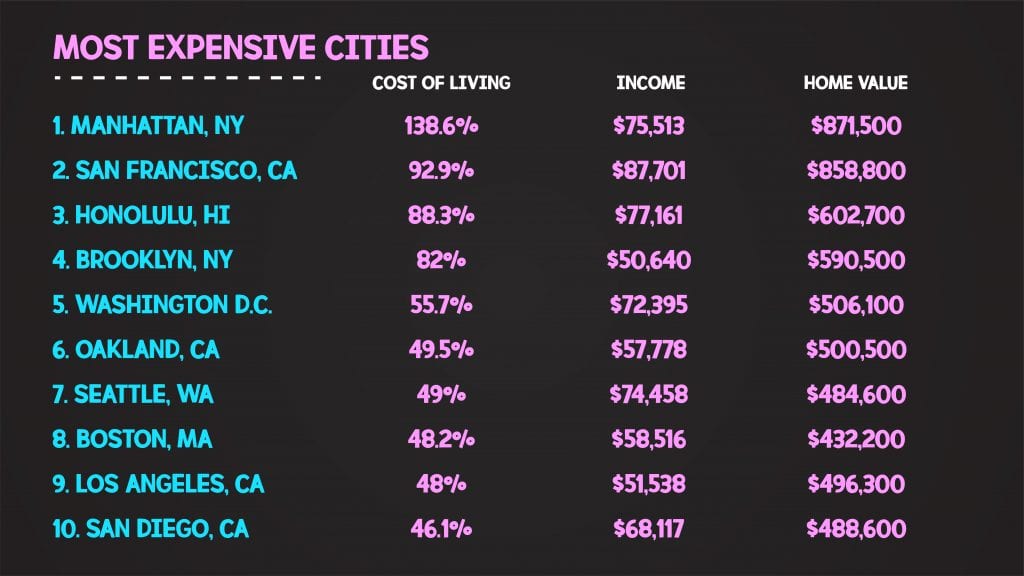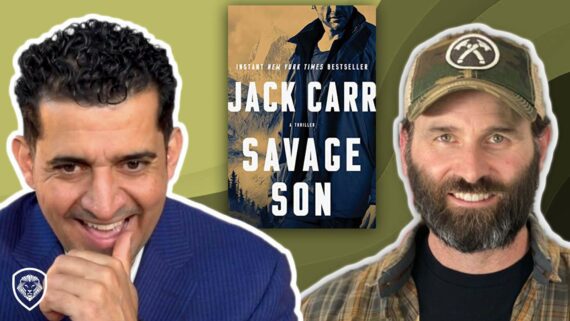Minimum Wage Debunked- Why Amazon & Walmart Love The Idea
With the elections being around the corner, one topic keeps coming up, minimum wage at $15 an hour. Is it a myth? Is it propaganda? Is it a good thing? It sounds noble. Does it benefit the younger generation? Does it benefit larger corporations or small businesses? I’m going to explain minimum wage in a different way, so that the next time somebody else – a politician, Republican or Democrat, tells you minimum wage needs to go up, you can ask them one question. And from this question you can see how they respond.
In addition, I’m going to highlight the cheapest cities in America to live and the most expensive cities in America to live in based on the consumer price index. Then on top of that, there are eight things you can do to increase your market value. So, you don’t just make the minimum wage, and start making some real money.
Presidents’ Record on Minimum Wage
The first thing I want to do is present the history of minimum wage. When it comes down to, raising the minimum wage has had a pretty strange history. October 1938, FDR introduces the minimum wage for the first time in America, 25 cents per hour, which is in today’s dollars, $4 an hour. A year later, he raises it again. FDR was followed by Truman who raised it twice. Eisenhower raised it once, Kennedy twice, Johnson twice, Nixon once, and finally Carter raised it four times during one term. Which during his time the economy in America was in shambles and that state of economic uncertainty cost him the reelection.
Ronald Reagan gets elected by wining 49 out of 50 states and are you ready? Ronald Reagan never once raised minimum wage and the economy blew up during his time. George Bush Sr. raised the minimum wage twice followed by Clinton who raised it twice. George W raised it twice. Barack Obama is the only Democratic two term president who raised the minimum wage only once since FDR.
I’ll explain why living wage is math, market value is the path, and minimum wage is a myth. How do these politicians come up with $15 an hour? I actually want to know how they came up with it and expect it to work for every city?
Living Wage vs. Minimum Wage
First of all, $15 an hour at 40 hours a week, 52 weeks in a year, is $31,200. That’s the poverty level. By the way, I run a business of nearly a hundred employees here in the state of Texas where minimum wage is only $7.25. There are only two people I pay less than $15 an hour and they are paid $13 an hour. The reason for that is they’ve only been with me for 60 days. I want talent to expect more and I want a better pool of people come in here. I don’t pay $7.20, I would never pay that because I want my employees to be able to have a good life. In return they perform better for me, not by force, but by choice.
There’s an organization called the Economic Policy Institute. When you go to their website you can pick any city and find out what is the cost of living is for that city. I trust it because they use basic math and data versus a random number like $15 an hour. Whenever a politician from the left or the right gets up and just starts throwing numbers out there, you know what they’re doing, they are questioning our intelligence. I don’t like that, and I don’t think you do either.
It sounds noble, but what they’re trying to say is no one’s really going to go out there and do research and find out what the living wage should be. So, let’s go over some data. Let’s take minimal wage and let’s look at the top 10 cities in America, most expensive and cheapest, to see how much buying power your hundred dollars has in these different cities.
Let’s take a look at the cheapest ones. In Brownsville, Texas you only need $85 out of that $100 because the cost of living there is 14.9% below the market. $15 an hour in Brownsville works. Let’s look at a few more. Oklahoma City is at 15.1% below the market whereas Jonesboro, Arkansas is at 15.5%, and eventually you reach McAllen, Texas at 23.9%. In McAllen, Texas you could be having a comfortable life with $15 an hour.
But let’s look at the top 10 most expensive cities in America. Number 10 is San Diego and to go to a restaurant in San Diego it’s going to cost you $146.10 of your $100. You need way more than $15 an hour. That’s number ten on the list. You want to know how much you need your $100 to stretch at number one, Manhattan? $238.60!
I thought these politicians were brilliant when they said $15 an hour is going to make a big impact. Really? You know what the rent is in Manhattan? The average rent is $4,559 a month. That is nearly $60,000 just for rent after tax. Don’t even get me started on all the other costs like grocery shopping and transportation which are 40% and 30% higher respectively than the rest of the country.
Is $15 just a guessing game because where is the math?
Who will really benefit if we raise it to this magic number? You know how a lot of times you’ll hear politicians say things like Walmart is unfair because they’re putting small business owners out of business. Or Amazon, gets the same treatment. Wait a minute!
Let me ask you real question here, who can really afford to pay higher wages if they would raise the minimum wage? A small business or Walmart? Walmart doesn’t care if they raised the minimum wage. They aren’t in some small town making less than the national average like small businesses are. The Walmart’s and Google’s are sitting there saying, “Awesome, keep doing it because all these small business owners are going to go out of business, and we have no more competition on that end.”
They just adjust their pricing. If raising the minimum wage drops profits by 4%, they raise prices by 4%. Meanwhile the small business takes a much larger hit than 4%, so much so they might not survive it. So, don’t be fooled the next time politicians say $15 an hour will help everybody. That number is for the big corporations.
8 Ways to Increase Your Market Value
I would love to see our leaders in public office and in the private sector talk about more. What do I need to do, and what everybody needs to do, to increase their own personal market value? The word I would like to hold our politicians accountable to is not minimum wage but living wage and market value. So how do you increase your market value? There are eight things for you to consider.
- Skills
Your skill set can fall into one of four different categories. At the bottom rung, anyone can do what you’re doing which means you are affected by minimum wage. The next step up is where only a few people can do what you do. You’re pretty good at it, which means you get paid a little bit more. Then you reach the top 1% of your skill. When you reach this level, you receive good money for your skills. Finally, you are the best at your skill. When you’re the best, guess what you do? You tell the market what to pay you because you are the best.
It takes a lot of sacrifices, a lot of hours, a lot of dedication, a lot of time away from family, a lot of nights of working late to get to the top two levels. That’s why only the top 1% and the best get paid what they get paid.
- Industry
A lot of people choose a noble industry. I get it. But if you become a school teacher, teaching fine arts, don’t expect to make a quarter-million-dollar income. If you want to try to do something that’s going to make good money, you got to look at industries that can use your talents.
- Avoid the Passion Drug
A lot of these motivational speakers online tell people to chase their passion. I have a completely different mindset. To me, whatever age you are, you got to have a game plan. This is my game plan.
There are 4C’s you ought to have at different 20-year increments throughout your life.
- Curiosity – the first 20 years of your life – See what people are like. Learn about different cultures, learn about different things. Learn, learn, learn.
- Career should be your focus the next 20 years – Go into a career where you can make money. Money matters a lot in life. Whoever tells you money doesn’t matter, they are probably single with no kids and never owned a home before. Money is critical.
- Creative – is next because now you have flexibility. Hopefully, you’ve saved so you can be a little bit more flexible.
- Contribution– the next 20 and this is where you really pick what do you want to do – Politics, charity, where ever you want to give back.
When you talk about passion, you have no idea how many things I’m passionate about. But I can do it all within my vision of this company I’m building. I don’t have to leave that.
- Specialize
Don’t generalize, specialize!
- Intrapreneur
If you can find a company that can work with, work your butt off. Go above and beyond everybody else and ask for a piece of the company profits. So many times, people want to start a business and I tell them, “Why don’t you go work with somebody and get a piece of what they’re doing? That way you can see if you want to be an intrapreneur or an entrepreneur.”
- Avoid the Tenure Trap
Don’t fall for tenure track traps where you are locked in for 10 years without any equity. You might as well be falling for the minimum wage trap. Demand more if you are going to be an alternative entrepreneur.
- Value, value, value, value, value, value
The more value you bring to the world, people will want to do more for you. So, the more value you bring, your market value will go up.
- Connections in Your Community
When you build a community and you have the right connections, money is attracted to you and your market value goes up. If you’re rubbing elbows with the right people, somehow some way you end up doing business with them. Just today, I was speaking to a guy that runs one of the biggest speaking companies, (Big speakers that tour the country giving talks) and we started going through a list of his speakers and they were billionaires. This guy made 1.9 billion while another made 2.2 billion. How he got them to sign with him was because he was in the same community when they started. Find the right community and connections and be sure to stick around, especially if the people are drivers. Eventually, you’re going to have your break.
To sum up, we ought to be talking about living wage and market value way more than minimum wage. So, if you have anybody that keeps bringing up the minimum wage debate, show them this.
There are two videos I want you to watch especially if you really do want to increase your market value. One is How to Reach Your Full Potential. This is a deep dive into reaching the potential inside you, however, it’s pretty direct. I speak the truth with you, and it will hurt.
The other video I want you to watch his Seven Habits that Help You Dominate in 2019. To get the pdf of everything in today’s video, text, (747) 260-8461. You can really look at all the numbers that maybe I skipped through a little bit fast. Having said that, if you haven’t subscribed, please do so.
Visit the official Valuetainment Store for gear
About Valuetainment:
Founded in 2012 by Patrick Bet-David, our goal is to impact entrepreneurs around the world through value and entertainment. We are the #1 channel for entrepreneurs because of the best interviews, best how to videos, best case studies and because we defend capitalism and educate entrepreneurs.
To reach the Valuetainment team you can email: marketing@patrickbetdavid.com
Follow Patrick on social media:












